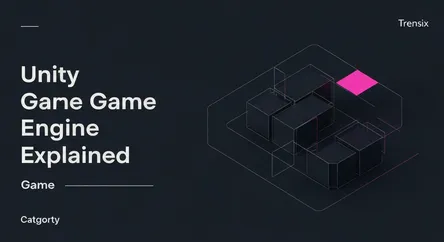Game
Unity Game Engine Explained

Discover Unity, the powerful real-time development platform used to create millions of games and interactive experiences across various platforms.
What is it?
Unity is a powerful cross-platform game engine developed by Unity Technologies. It's a comprehensive development environment used to create 2D, 3D, virtual reality (VR), and augmented reality (AR) games, as well as other interactive simulations and experiences. Known for its user-friendly interface and extensive Asset Store, Unity allows creators to build and deploy content to over 25 platforms, including Windows, macOS, iOS, Android, and major game consoles. Developers primarily use the C# programming language to script game logic and interactions within the engine.
Why is it trending?
Unity remains a dominant force in game development, particularly within the indie and mobile game scenes, due to its accessibility and robust feature set. It's trending not only for powering blockbuster hits but also for its expansion into other industries like film, automotive design, and architecture for real-time 3D visualizations. Recently, Unity also trended due to significant controversy surrounding a new 'Runtime Fee' pricing policy, which caused widespread backlash among developers and sparked industry-wide conversations about the sustainability of game development platforms.
How does it affect people?
For developers, Unity democratizes game creation, lowering the barrier to entry and empowering small teams or solo creators to bring their visions to life. For gamers, this results in a massive and diverse library of games, from innovative indie titles to major mobile hits. The engine's capabilities directly shape the interactive experiences players enjoy daily. However, business decisions like the recent pricing changes can directly impact developers' livelihoods, potentially influencing the cost and availability of future games for consumers.